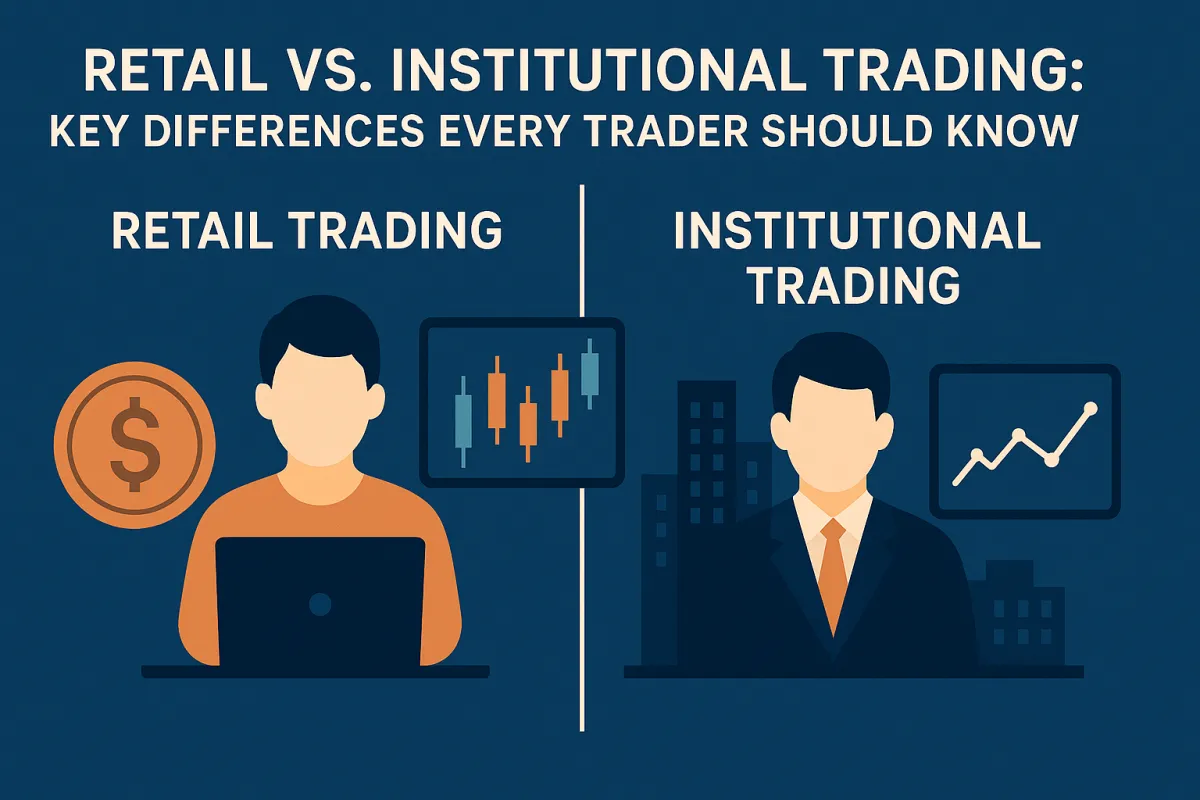
Retail vs Institutional Trading: Key Differences Every Trader Should Know
Retail vs Institutional Trading: Key Differences Every Trader Should Know
When it comes to financial markets, not all traders are created equal. While both retail and institutional traders participate in buying and selling securities, the scale, strategies, and access to resources set them miles apart.
Understanding these differences is essential—whether you're a beginner investor, a seasoned day trader, or just curious about how the markets operate behind the scenes.

Who Are Retail Traders?
Retail traders are individual investors who buy and sell securities for their personal accounts. They typically trade through online brokers and often rely on publicly available tools, platforms, and market information.
Common Characteristics:
Smaller capital (hundreds to thousands of dollars)
Use DIY platforms like Robinhood, E*TRADE, or Interactive Brokers
Rely on technical indicators, news, and social media
Limited access to advanced tools or research
Often trade part-time or casually
Who Are Institutional Traders?
Institutional traders represent large entities like hedge funds, mutual funds, insurance companies, pension funds, and investment banks. They manage and invest millions to billions of dollars on behalf of clients or stakeholders.
Common Characteristics:
Massive capital and high-volume trades
Access to private data, algorithmic trading, and high-frequency systems
Often use proprietary research and analytics
Employ teams of analysts, quants, and portfolio managers
Negotiate lower fees and better pricing due to trade size
Pros and Cons
Retail Trading Pros:
Full control over decisions
Flexible trading hours
Access to growing tools and platforms
Retail Trading Cons:
Limited information
Higher emotional trading
Can fall prey to market manipulation
Institutional Trading Pros:
Greater resources and insight
Professional risk management
Ability to influence markets and pricing
Institutional Trading Cons:
Less flexibility due to regulation
Can face scrutiny and compliance issues
Often slower to react due to size
Final Thoughts
While institutional traders may dominate the markets in volume and influence, retail traders have never had more power, thanks to technology and democratized data.
Whether you're managing your own portfolio or aspire to trade at an institutional level, understanding the playing field gives you an edge. The gap between retail and institutional trading may still exist—but it's narrowing every day.
Want to dive deeper into trading strategies or tools for both retail and institutional investors? Let us know in the comments!